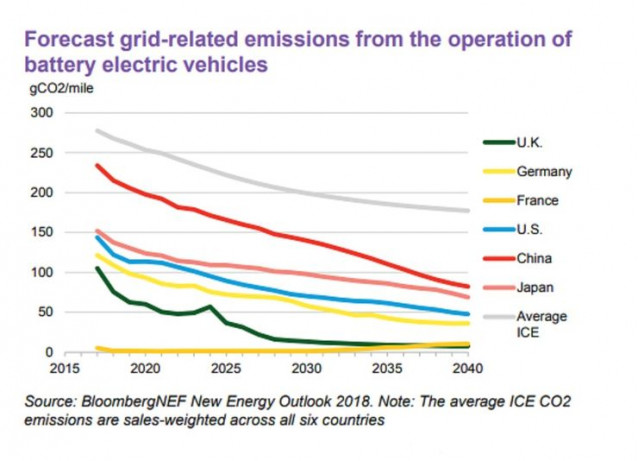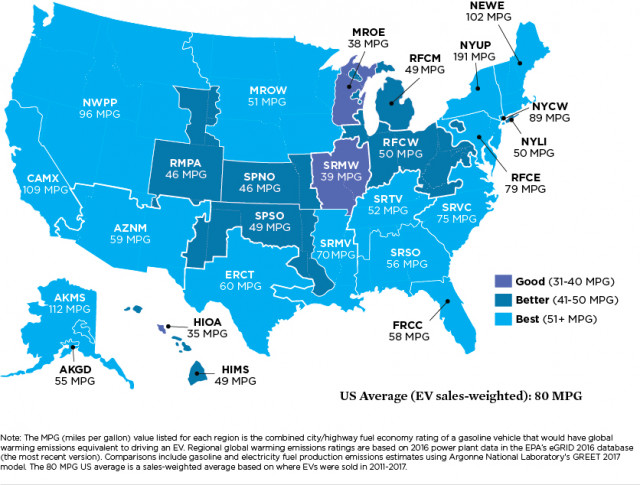
Smokestacks pollution air quality
One of the easiest ways for electric-car drivers to get in an argument is discussing how much coal-fired electricity contributes to pollution.
Now a new study by BNEF (a Bloomberg spinoff) can help give electric-car drivers some peace of mind in these arguments. It shows that electric cars are cleaner—even when they do run on primarily coal-generated electricity.
READ THIS: UCS report shows electric cars get even cleaner in 2018
The study showed examined electric-car emissions in China, the U.S., U.K., Germany, France, and Japan, and found that, even accounting for the energy used in producing EV batteries, electric cars produce about 40 percent fewer greenhouse gases than the average internal combustion car around the world.

BNEF study shows EV emissions falling faster than gas engines as power grid gets cleaner
In countries such as Britain, which use a higher proportion of renewable energy, the difference is even greater. The rate in Britain in 2018 was about 27 percent of the average.
Even in China, where more than 60 percent of electricity is produced from coal, electric cars are responsible for about 20 percent lower greenhouse-gas emissions than the average internal combustion car in the world, the study reports.
And while fuel economy of gas cars is improving, it is not improving as fast as electricity production is getting cleaner, so the gap between emissions from electric cars and internal combustion cars is growing.
DON'T MISS: EPA: Cleaner power generation offset increase of vehicle emissions in 2017
The numbers jibe with those widely cited from the Union of Concerned Scientists, which show that even in areas of the U.S. with the dirtiest electric grid—one which relies on the largest amounts of coal power—an electric car produces fewer emissions than a conventional hybrid that gets 50 mpg. That applies to hybrids in 90 percent of the country, according to UCS.

UCS 2016 EV emissions mpg map
Like UCS, the more international BNEF study considered that countries around the world are reducing their dependence on coal in favor of more renewable energy generation from wind, solar, and other sources.
The study notes that this is true in almost every region of the world except for Southeast Asia.